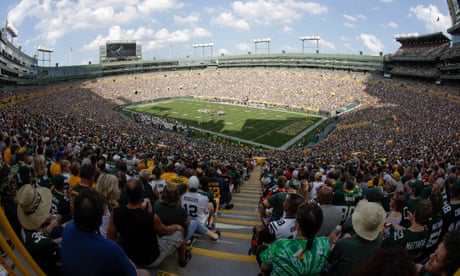
US sports teams often leverage the threat of relocation to access taxpayers’ money. But the Packers have thrived under a community driven model
Just days after the Jacksonville Jaguars’ first home game of the season, team president Mark Lamping – who has long been asking the City of Jacksonville to use taxpayer money to part-fund a $2bn stadium renovation – suggested that the team may move if the city doesn’t pony up the dough. In doing so, Lamping joins a well-established tradition among US pro sports teams. According to ESPN, since the early 1990s more than half of NFL franchises have shown “interest in moving to Los Angeles – or at least trying to use the possibility as leverage for new stadiums or renovations.” (That’s just Los Angeles; some franchises have threatened, or actually moved, to other cities.) The threats can be effective: A recent poll showed that 46% of Jacksonville residents would support giving $1bn of public money for the renovation if it was the only way to keep the Jaguars in the city; that’s up from a mere 6% who pledged their support if they weren’t told about the threat of relocation.
Despite some notable recent relocations, most teams stay put after getting what they want: Cities usually capitulate, forking over hundreds of millions of public dollars to fund renovations or build new stadiums. One example is my home city of Minneapolis, after threats to move the Vikings to, you guessed it, Los Angeles. The team subsequently got nearly $500m in public funding to build a new stadium.




